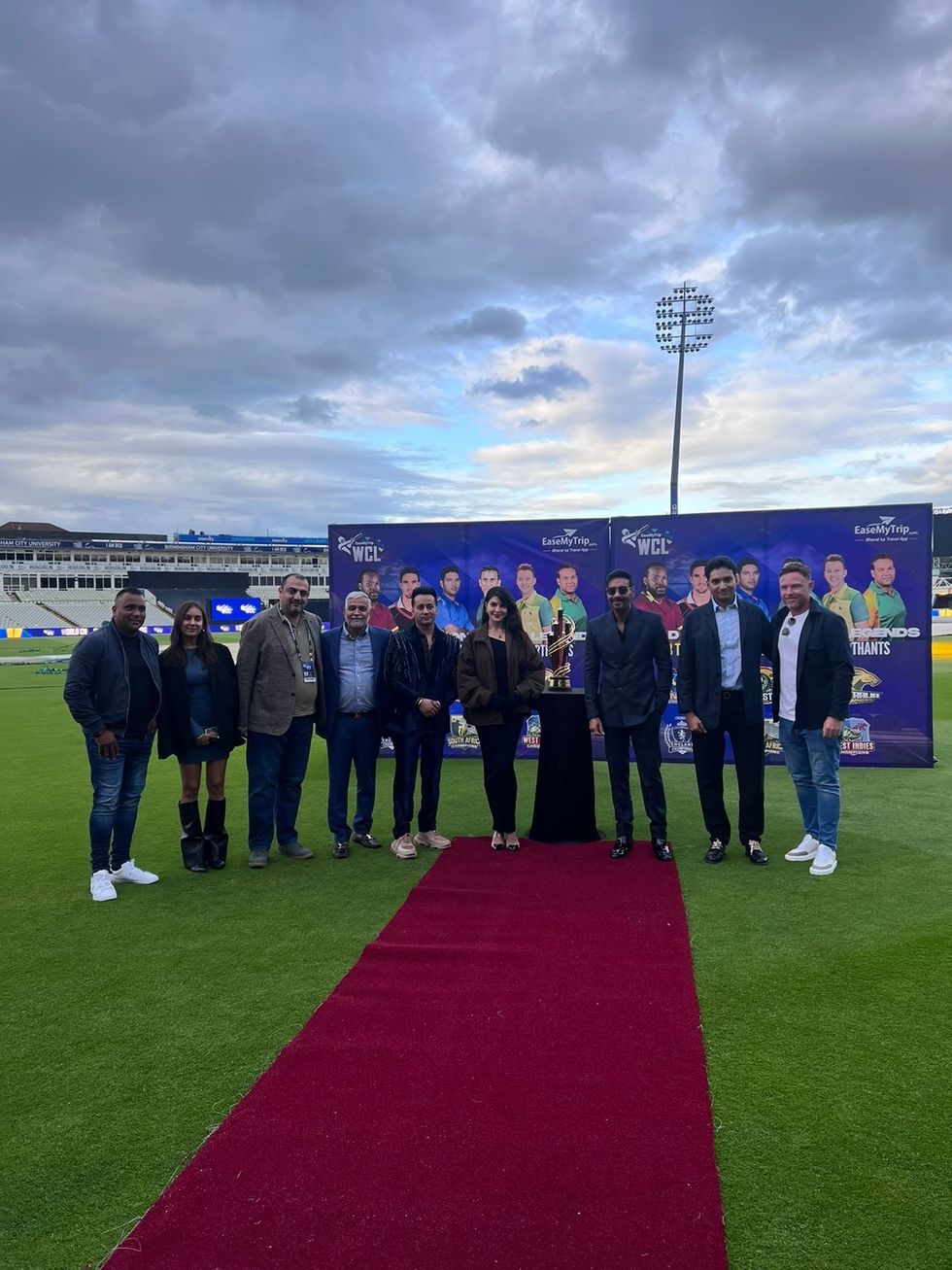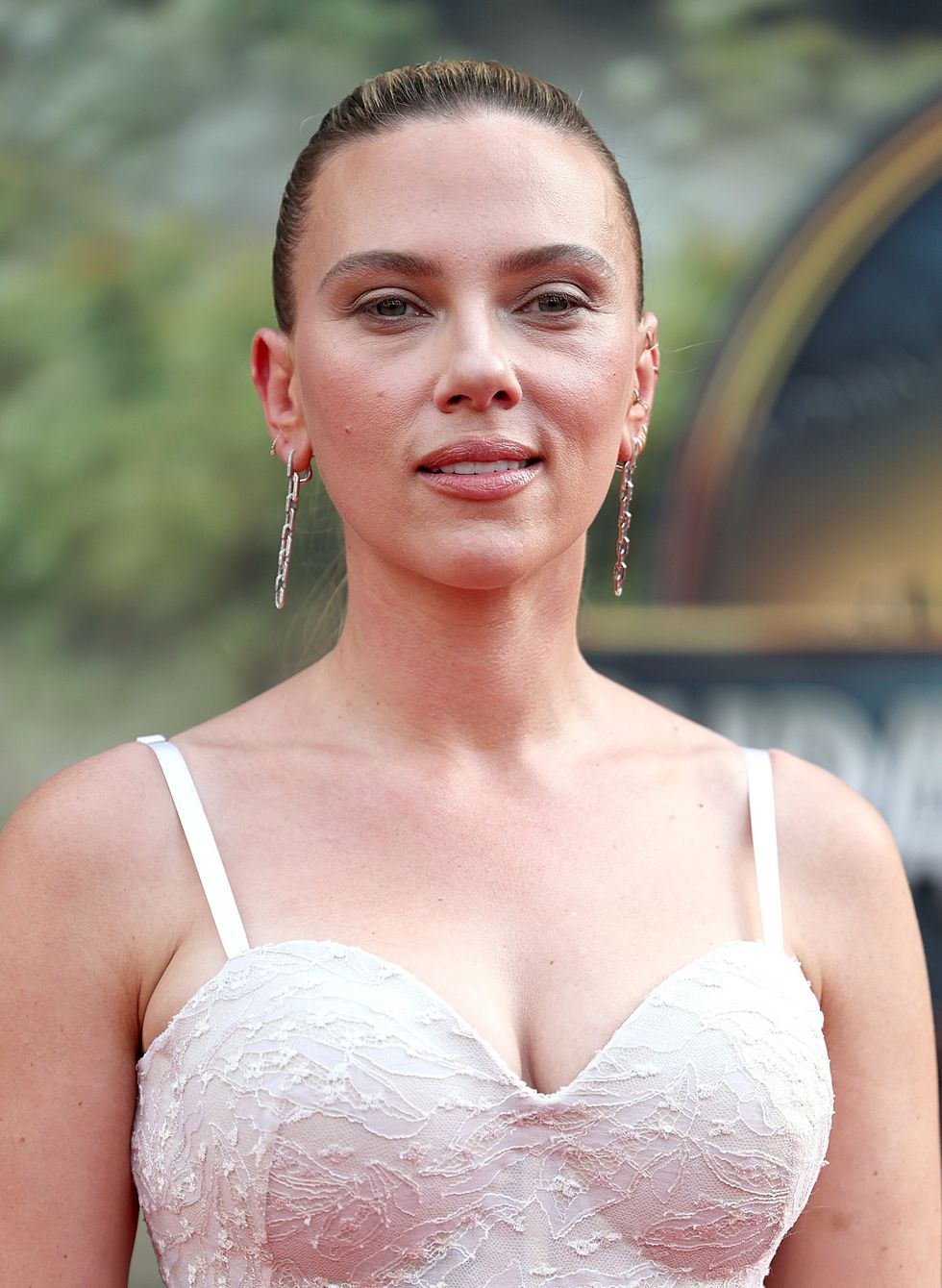ACCUSATIONS of two-tier policing are “nonsense”, a senior police chief has told Eastern Eye.
But Gavin Stephens, chair of the National Police Chiefs’ Council (NPCC), admitted that forces “don’t always get it right”.
In August, right-wing mobs, intent on violent disorder, took to the streets in Southport on Merseyside the day after three girls were stabbed to death.
“During the course of the week, there was this debate about two tier policing, which in my mind, was nonsense in the context of this,” said Stephens.
“Because if you're going to set fire to bins and push them up against fire exits on a building which contains 200-plus people, children in the building as well, I think in that context, why people would surface the two-tier policing debate.
“I’m entirely up for a debate about whether we get the balance right in policing, and if there are some communities, especially with the national race action plan where black communities have felt in the past over policed and under protected.
“I'm entirely up for a debate about balance in that context, but not in this context.
“The message in this context is that if you’re intent on serious violence, in committing arson, burglary, violent disorder, grievous bodily harm, actual bodily harm, that's just out and out criminality.
“And for whatever reason you turned out on the street in the first place, it's just pure criminality, and you will be dealt with as criminals, and we've seen some of the severe sentences that have followed.”
Shocking violence
Since 29 July, when police have arrested 1380 people for violence during riots last month.
Along with the Crown Prosecution Service (CPS), they have charged 863 with, among other crimes, violent disorder, harassment, possessing weapons and online offences.
The courts jailed 27-year-old Thomas Birley, from Swinton in Rotherham, for nine years after he pleaded guilty to arson.
The judge heard that Birley was part of a group which smashed the windows of a hotel housing asylum seekers, and he added to a fire against the building.
Critics of the way rioters have been dealt with say that this is proof-positive of two-tier policing (Photo by PETER POWELL/AFP via Getty Images)Stephens described he riots as a “shocking state of affairs”, and he told Eastern Eye that those jailed were “intent on causing violence for violence sake”.
“I've always believed that a key part of what we do in policing is to be part of making our community stronger,” continued the police chief.
“I think we realised in the riots that there are some fragile parts to our community cohesion, and we saw that manifest itself in probably the worst violence that we've seen since 2011.
“Violence directed towards the most vulnerable people in our society, and violence directly towards police colleagues as well.
“So, it was a pretty shocking state of affair, clearly it needs to be condemned in the strongest terms.
“Some commentary that I've seen, tries to give a rationale for the violence, and I think that's always very hard, because, of course, there were people that were just intent on violence for violence sake.”
Policing judgement
The prime minister, Keir Starmer, made clear that the courts would punish those who took part both severely and swiftly.
It was what he did when he was the director of public prosecutions during the August 2011 riots in London.
But critics of the way rioters have been dealt with say that this is proof-positive of two-tier policing.
They argue that that neither the law nor politicians have been as quick to condemn or as harsh with anti-Israel and pro-Palestinian protestors following the killings of 1200 Jews on 7 October 2023 by Hamas.
The UK government has designated Hamas as a terrorist organisation, and anyone found to be a member or promoting its beliefs could face up to 14 years in prison.
Gavin Stephens (Pic credit: Benjamin Cremel/AFP via Getty Images)“You are absolutely right, there have been people who've called for violence and hatred and so on,” said Stephens when asked about the language used by pro-Palestinian campaigners.
“Of course, the context of dealing with that, whilst trying to keep a very large crowd safe, sometimes requires different policing responses.
“What happens when offences are committed in those protest scenarios is that sometimes it's not safe to act at that time, but you have to follow up, follow up later.
“I guess all of these things are examples of difficult policing judgments that we ask colleagues to make in the face of high tensions and high pressures, and we don't always get them right 100 per cent of the time.
“To think that policing could get these judgments right all of the time, in these scenarios that's not possible.
“Sometimes there needs to be investigations and reviews and follow ups, and we adjust our tactics as we go along.”
When questioned, Stephens agreed that the police would continue to investigate anyone who incited hatred against Jews and take court action where necessary.
Social media misinformation
What is now widely accepted is that the troubles broke out after the spread of misinformation on social media.
Groups took to X, formerly known as Twitter, claiming that the 17-year-old accused of murdering three young children was a Muslim asylum seeker who arrived by boat in 2023.
The police made clear that this was false, but it was too late and far right groups waded in stoking up Islamophobic hatred and anti-immigrant hatred.
The teenager, Axel Muganwa Rudakubana, from Banks in Lancashire, charged with three counts of murder, 10 attempted murders and possession of a curved kitchen knife, was born in Cardiff.
His Rwandan parents moved to the Southport area in 2013, and they have no known links to Islam.
“That initial disinformation about the identity of a potential perpetrator was what led to some of the early disorder,” said the former chief constable of Surrey.
“As the time developed, that was how online disinformation was used to stoke up further violence, sometimes from overseas.
“We saw channels in the [United] States and elsewhere, of extreme right wing type channels.
“The ease of which people took to social media to vent their hatred and racism in part, fuelled the disorder, which was why the swift criminal justice response was really important.
“As part of that, hopefully perpetrators of hatred online have recognised that there are consequences to doing that.
“I spoke at the end of that week that the online space is not some sort of abstract world.
“It's not some safe space where you can vent your anger.
“It's got real world consequences, and we saw that to dramatic effect.”
Learning lessons
The former head of counter terrorism in the UK, ex-Met Assistant Commissioner Neil Basu, had warned for almost a decade of the growth and danger of extreme far right groups.
So, had the police taken their eye off the ball?
“We're 103 different members trying to represent UK policing as best we can, but we also provide some operational functions at the centre,” Stephens explained.
“One is something called the National Police Coordination Centre.
“They're the team that have coordinated all the operational effort to this recent disorder, and one of their functions is what's called a strategic intelligence and briefing function.
“Part of their job is to monitor the intelligence, whether that's coming from the far right or somewhere else, working alongside colleagues in counter terrorism policing, to make sure that we understand the threat and are ready and prepared to get them.
“So, I don't think we took our eye off the ball.
“We were surprised by the ferocity and intensity of that initial violence over those early days, and we had to rapidly stand up a much stronger response.
“Some might say we were caught out by that, but I haven't yet found anybody that absolutely predicted that this was going to happen.”
Stephens told Eastern Eye that the police could learn lessons from this summer’s riots.
“One of the things that was effective in the disorder, was the communications around the criminal justice action itself, particularly the charges and court cases,” he said.
“Prior to the second weekend, when we were expecting more disorder, I think, [these] had a strong deterrent effect, and perhaps there is something to learn at the other end of the spectrum.
“We've been talking about far right, but if you went towards the far left, our communications activities with those cases are equally important as well as sending a deterrent.
“We are reflective on these things, we're not deaf to the feedback and concerns.
“My point is the difficult judgments and difficult context, and in the violent disorder, the judgments were much less difficult, because it was obvious to everybody what was going on.”
Language
He acknowledged that forces had a role to play when it came to so called “community cohesion”.
Such comments are likely to be criticised by MPs such as Reform’s Lee Anderson.
In April 2023, Anderson clashed with the Met commissioner, Sir Mark Rowley, over the policing of protests outside the Houses of Parliament.
In May (1), Rowley’s former colleague, Neil Basu, told this newspaper that police were losing the trust of their communities because of weak leadership, “wilful blindness”, and politicians “bullying” chief constables.
Stephens would not comment on whether political interference was affecting policing.
But he did acknowledge that the use of language was important in creating a more harmonious society.
“Their job is to hold me to account, and it's very helpful to policing when we are given by politicians that operationally independent space to make these difficult judgments.
“If then they feel we've made the wrong judgment, they can hold us to account for that judgment.
“If they reach right in to those operational decisions, then they become accountable for the decisions and any pressure that might be brought to bear.
“That's why I think language, approach for everybody is really important.
“Perhaps the final thing that I'd say is that all of us, whatever position we're in, the media, voluntary work, policing, politics, we all have a civic responsibility.
“And the civic responsibility is to the type of society that we want to live in, the type of community that we want to engender and create.
“I think if you're in a leadership position, and you have that civic responsibility, each and every one of us should think about our actions and our words and what that does for the health of local communities.”






 A compelling premise, layered and unpredictable charactersAMG
A compelling premise, layered and unpredictable charactersAMG Anyone who enjoys a gripping story with a diverse cast and unexpected twistsHarperFiction
Anyone who enjoys a gripping story with a diverse cast and unexpected twistsHarperFiction








 As WCL enters its second season, Sharma is scaling upwclegends.uk
As WCL enters its second season, Sharma is scaling upwclegends.uk


 Scarlett Johansson opens up about breaking free from early typecastingGetty Images
Scarlett Johansson opens up about breaking free from early typecastingGetty Images  Johansson reflects on her childhood stardom and evolving careerGetty Images
Johansson reflects on her childhood stardom and evolving careerGetty Images  From Avengers to auteur Scarlett Johansson embraces creative control Getty Images
From Avengers to auteur Scarlett Johansson embraces creative control Getty Images